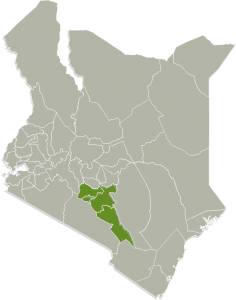| CATEGORY: | CSA |
| CSA PROJECT: | Promoting ELUM and Networking for Livelihood improvement (PENELI III) |
| SCALE: | County coordination actions |
| LOCATION: | Kiambu, Murang’a . Nakuru, Machakos, Kajiado, Kisumu, Vihiga, Kakamega |
| PERIOD OF THE PROJECT: | |
| GRANT SIZE OF THE PROJECT: | N/A |
PARTICIPATORY ECOLOGICAL LAND USE MANAGEMENT (PELUM) KENYA

SUMMARY OF ACTIONS
Participatory Ecological Land Use Management (PELUM) Association is a network of Civil Society Organizations / NGOs working with Small-scale farmers in East, central and Southern Africa. PELUM Kenya is the Kenyan country chapter of the PELUM Association and has a membership of 52 member organizations. Some of the activities that the organization engages in include; establishment of agroecology demonstration site at the community level; awareness creation on climate change adaptation; capacity building on agroecological practices and natural resources conservation initiatives.
CONTEXT
Climate change is a challenge in the country due to its effects on the agriculture sector which relies on rainfall. At the community level, organizations that work with small scale farmers have noted the increasing loses being incurred by small scale farmers due unpredictable weather patterns seasonally. This is forcing them to initiate more climate change adaption approaches to enhance their resilience. . The rationale for integrating adaptation into development strategies and practices is that interventions required to increase resilience to climate variability and climate change generally enhance development objectives.
OBJECTIVE
The objective of the project is to ensure improved food sovereignty, nutritional variety, strengthened resilience and sustainable use of natural resources for small scale farmers and pastoralists.
KEY INTERVENTIONS
| FARM LEVEL | TARGET (NO OF FARMERS) | CSA INDICATORS MONITORED |
| – | – | – |
| BEYOND FARM LEVEL | TARGET BENEFICIARIES | INDICATORS MONITORED |
| Capacity building and Advocacy | PELUM network members | Number of partners/stakeholders reached |
PARTICIPATION IN KEY CLIMATE &AGRICULTURE NETWORKS
The organisation is a member of the following networks: Africa Food Sovereignty Alliance- AFSA; Africa Biodiversity Network –ABN; Kenya Organic Agriculture Network –KOAN and Climate Smart Agriculture Multistakeholder Platform among others.
INVOLVEMENT IN CSA
RELEVANCE OF CSA MSP TO WORK
- Policy formulation
- Technology transfer
- Coordination and networking
- Communication
- Information about CSA
- Networking
- Learning and exchange
- Reporting and showcasing
- Influence policy environment
RECOMMENDATION ON WAYS TO SUPPORT MSP
- Developing specific climate smart agriculture policies, legislations, strategies, plans
- Dissemination of climate smart agriculture knowledge and technologies
- Capacity building of key actors involved in climate smart agriculture implementation
- Mobilizing actors and facilitating dialogue on climate smart agriculture issues/actions
LESSONS LEARNED AND CHALLENGES IN IMPLEMENTATION OF CSA PROJECT
Farmers adopt climate smart agriculture practices when they are exposed by visiting farmers who are successful and have experienced similar challenges.
